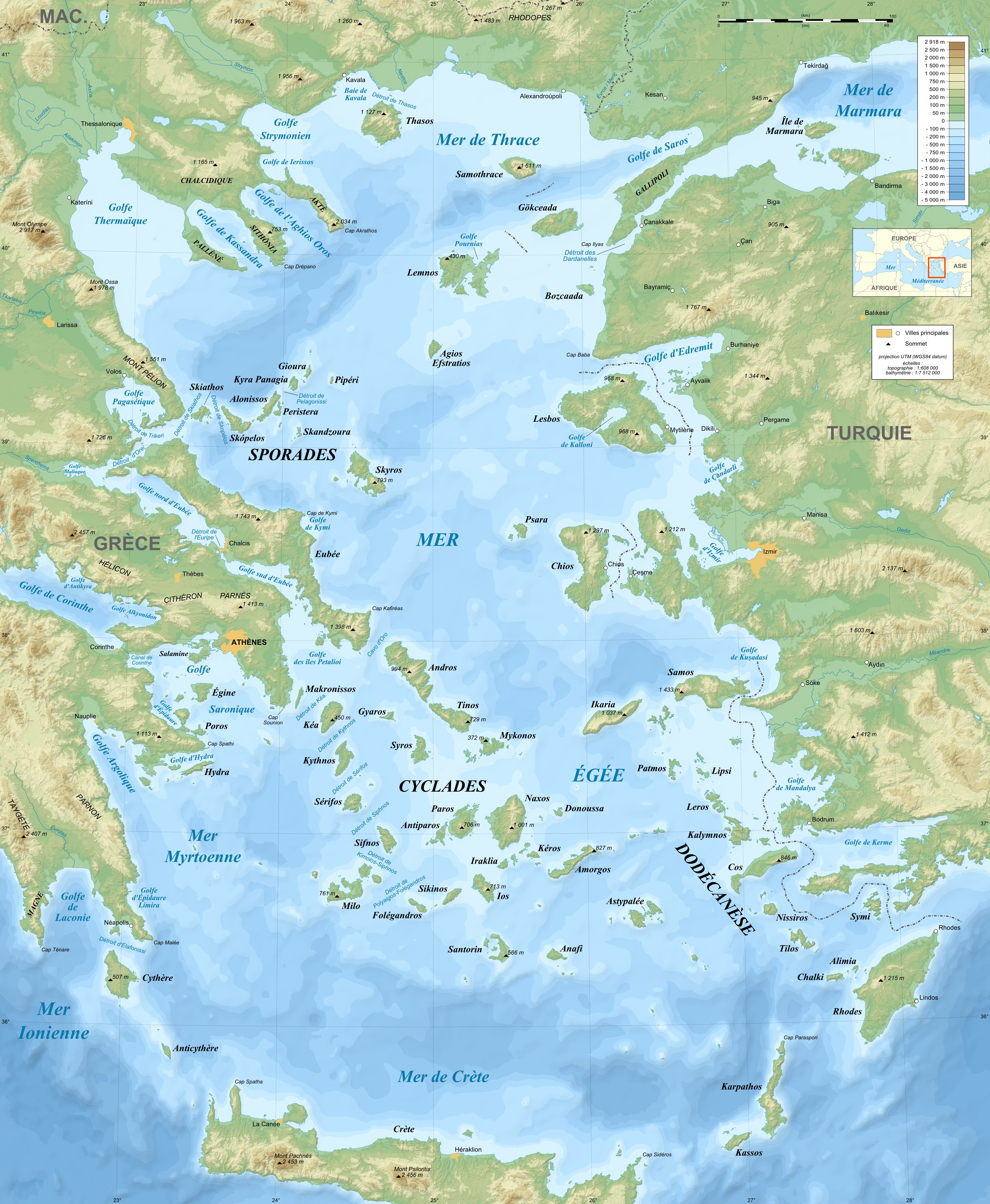Earlier this week, HaggardHawks tweeted this:
The word ARCHIPELAGO was originally just another name for the Aegean Sea. pic.twitter.com/KQk2NlRemP
— HaggardHawks Words (@HaggardHawks) June 21, 2015
Aside from giving us the chance to tweet that fantastic NASA spaceshot, again this is one of those weird facts that almost sounds too strange to be true:
@HaggardHawks - how, and why? You are the most infuriatingly interesting tweeter. A pox on your house. But not really.
— MmeBlahblatsky (@MmeBlahblatsky) June 21, 2015
“Infuriatingly interesting” might just be the finest compliment we’ve ever received. But our blushes aside—this factoid is indeed completely genuine. And here’s why.
The arch– of archipelago is the same as in words like archangel and archbishop: derived from the Greek word archos, it essentially means “ruler”, “chief”, or “first and foremost”. It’s also the same arch– we have in words like patriarch (in the sense of a “ruling” father, or an earliest ancestor), anarachy (literally “without a leader”), and even archaeology (which is the study, quite literally, of our “first” artefacts).
The –pelago part, meanwhile, comes from the Greek word for the sea, pelagos, which is similarly the origin of a whole bunch of fairly esoteric geographical terms like bathypelagic. Put these two halves together, and you end up with a word that literally means something like “chief sea”.
The Aegean was (for obvious geographical reasons) the “chief” sea of the Ancient Greeks, so (for obvious etymological reasons) the word archipelago simply began life as another name for it. This was also the meaning that the word had when it first appeared in English back in 1503—but how did we get from there to the meaning we have today?
If you know your European geography, you’ll know that the Aegean Sea is absolutely full of islands. Well, not exactly full, because then there’d be no water. But there are, nevertheless, quite a few of them:
In fact, from the Adelfoi group in the west to the tiny rocky outcrop of Zourafa, there are almost 2,500 islands in the Aegean Sea that together form one-eighth of Greece’s entire land area and are home to one-seventh of the Greek population. So, yes—that’s a lot of islands. And explorers in the sixteenth century knew it.
Thanks to the Aegean’s notably island-studded appearance on maps and navigational charts, when ever more daring journeys of exploration began to be made in the 1500s and 1600s, its name, archipelago, began to be used as a byword for any newly-discovered patch of water that likewise appeared full of islands.
So when the English explorer Martin Frobisher’s third voyage to uncover the Northwest Passage in 1578 led him into the frozen, island-strewn Canadian Arctic, his lieutenant George Best (no, not that George Best), appropriately noted that:
These broken landes and ilandes, being very many in number, do seeme to make there an Archipelagus, which as they all differ in greatnesse, forme, and fashion, one from another, so are they in goodnesse, couloure, and soyle [soil] muche unlike.
By the 1600s, however, this meaning had altered so that archipelago no longer referred to an island-strewn stretch of water, but to the islands themselves—as in this English translation of the Portuguese explorer Fernão Mendes Pinto’s journey to southeast Asia:
For then he might have means, with less charge, to shut up the Straights of Cincapura [Singapore] … and so stop our Ships from passing to the Seas of China … and the Molucques; whereby he might have the profit of all the Drugs which came from that great Archipelague.
Pinto’s account was translated into English in 1633, and the meaning of archipelago his remained unchanged ever since.


Leave a comment!